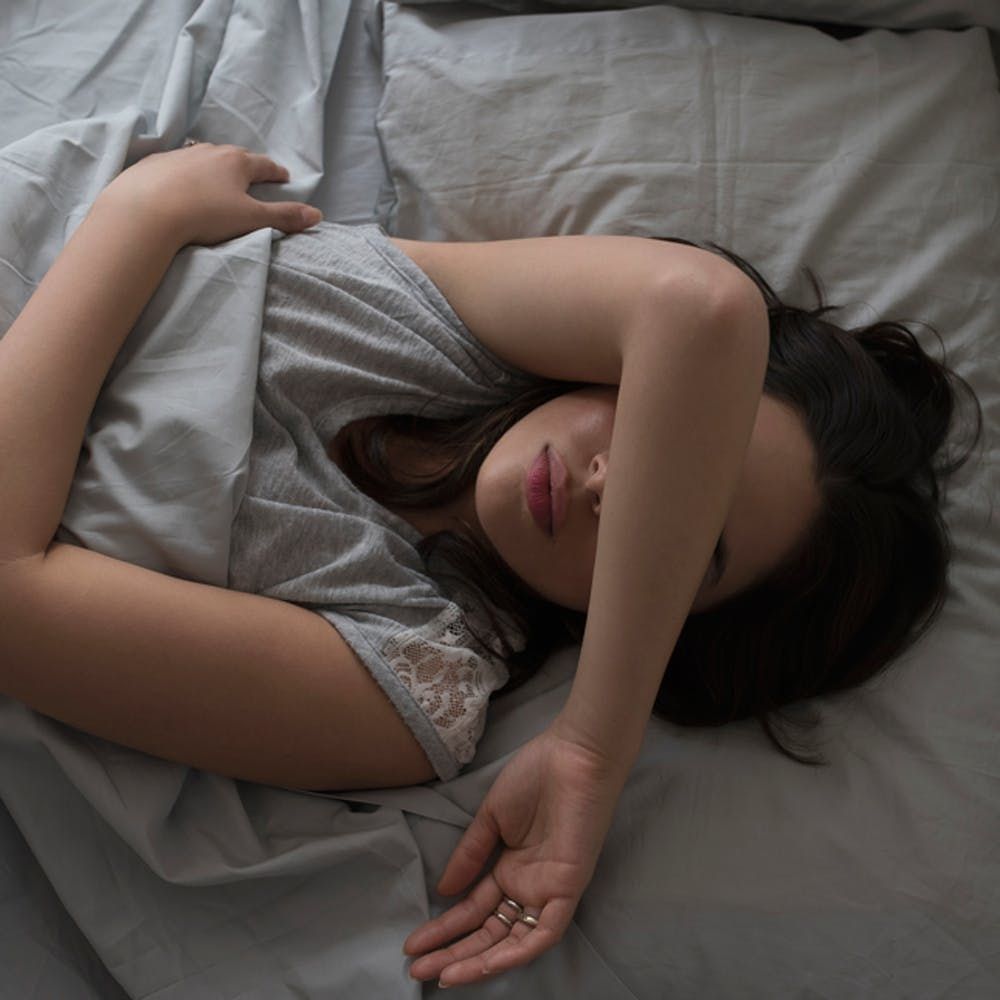For the first 23 years of my life, I slept like a “normal” person. I never worried about drinking caffeine at night or turning off screens a few hours before bedtime. Regardless of how active I had been throughout the day or how stressed I was feeling, I would simply decide that it was time to sleep, cuddle up in bed, close my eyes and fall asleep. It was that easy.
Everything changed three years ago. One night in early February, I got into bed as usual, turned on my latest Netflix binge (as had become my ritual) and waited for sleep. It never came. The next morning, I joked with my friends and coworkers about my sleepless night, but the situation became a lot less funny when it happened the next night… and then twice more that week.
Within a month, it felt like my lack of sleep had taken over my life. I was exhausted and miserable all the time, and I craved naps (it’s worth noting that I barely napped, even as a little girl). Everyone around me had a suggestion about how I could take back my sleep, and I tried all of them — but no matter how early in the evening I stopped eating or how I adjusted my sleep posture, it wasn’t getting better. I couldn’t understand why a basic pattern of my life had taken such a drastic turn.
A year later, I was desperate for help, so I consulted my general practitioner. By this time, the whole concept of sleep had become so heavy with stress and anxiety that I needed a professional to give me a clearer solution. Reluctant to prescribe sleep medication, my doctor suggested that I try melatonin. Full of hope, I picked up a bottle at the drugstore and took it right before bed. An hour later, my body was covered in a rash — I’d had a terrible allergic reaction to the natural remedy. I decided that laying awake in bed itchy was worse than simply laying awake in bed. That was the last of the melatonin.
Ultimately, my search for a solution led me to over-the-counter sleep meds (Unisom). I’ve never been one to take medicine unless absolutely necessary, so I was reluctant to go down this road. But my constant fatigue was getting scary, and I knew I needed rest. The OTC sleep aid gave me my first solid night of shut-eye in over two years, and I have rarely been happier than I was that next morning. I fell into a pattern. I would take a Unisom one night, then attempt to fall asleep naturally the next night, which would end in such failure that I would be right back to the medication on the third night.
It occurred to me a few weeks ago that settling into this pattern for the better part of the year had totally zapped my body’s ability to regulate its own sleep. I realized that I had become so reliant on the medication that I probably wouldn’t be able to resume a “normal” sleep pattern even if my body wanted to. I reached out to board-certified sleep specialist Dr. Michael Breus, who confirmed that while over-the-counter sleep aids do have their place, they are not meant for use on a nightly basis.
Dr. Breus emphasizes the importance of consistency when coming off OTC aids and trying to reestablish a natural sleep cycle, so I decided to go cold turkey and simultaneously force myself into a more regular bedtime routine. I stopped drinking wine and eating chocolate after 9pm. I made a point of turning off the TV and switching to reading about an hour before I was ready to go to sleep. Instead of taking my medicine, I started brewing myself an herbal sleep tea to drink while I wound down for the evening.
At first, the transition was terrible. For the first week, I was like a zombie — staring at my ceiling for five or six hours after bedtime, then stealing an hour or so of rest before I had to get up. I was ready to give up on this experiment, and then one night… I slept. It was only for a few hours (much less than the oft-recommended eight) — but it happened. It felt like I had won a war.
It’s been almost a month since I decided to kick my sleep aids to the curb, and at this point, the results are still a mixed bag. I’m up to about six hours a night, but it’s still not considered a good night’s sleep. I still do a fair amount of tossing and turning, and sleep remains a generally anxiety-ridden topic in my household.
My goal is to teach my body how to regulate its own sleep again. I’m an active, otherwise healthy 26-year-old woman, and based on all expert evidence, there’s no fundamental reason for my challenges with falling (and staying) asleep. In time, I hope to reestablish some normalcy with my sleep pattern — but if the problem persists, I’ll be taking Dr. Breus’ advice and making an appointment with a sleep specialist.
(Photos via Getty)
